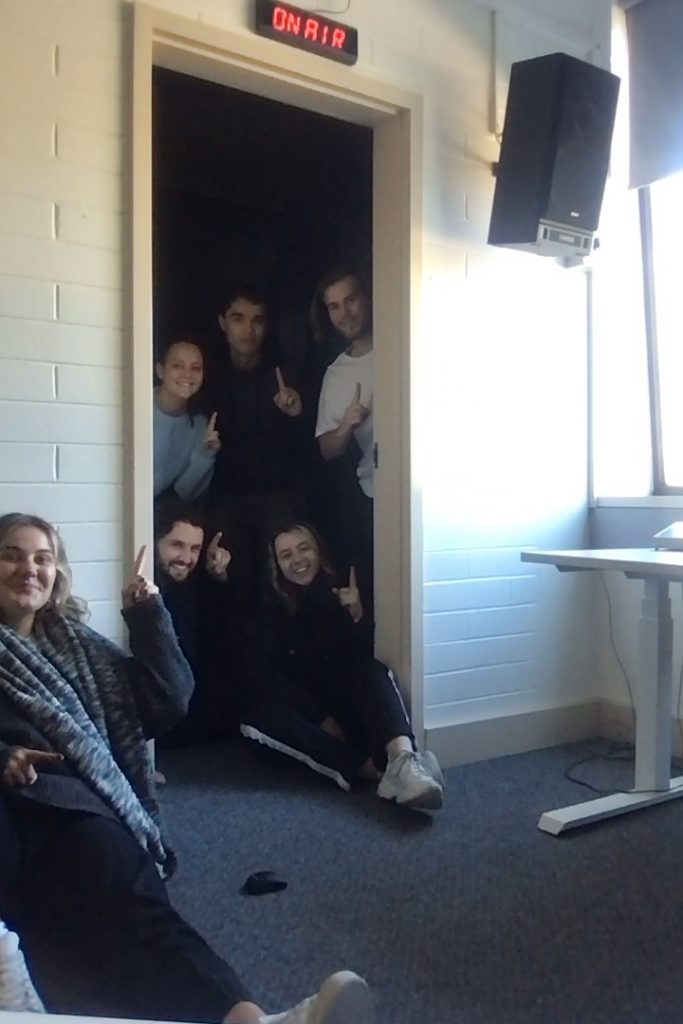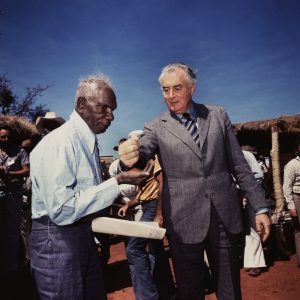Trial and error in social media campaigns
caption id=”attachment_1213″ align=”alignleft” width=”162″ caption=””Faceless man” Paul Howes”] [/caption]By MICHAEL BYRNE
[/caption]By MICHAEL BYRNE
The 2010 election has seen a change in the way Australian political forces campaign. In an effort to emulate Barrack Obama’s successful web-centric campaign of 2008, many political figures now maintain some form of presence online. Facebook, Youtube and Twitter in particular have been instrumental in helping politicians, activists and journalists spread their messages and engage with the community. These forums have also given political parties and pressure groups a medium in which they can advertise free from the financial and legal restrictions of old media. However, as more politicians use social networking in an informal and spontaneous manner, it is becoming clear that the medium is risky and potentially toxic to any political campaign.
During the election campaign, social networking sites were popular for several political organisations. Youtube in particular was used as a cheap and (when compared to old media) less restrictive vehicle for advertising. The ALP, Liberal Party and Greens uploaded TV ads, extended messages from leaders and other clips promoting policy or discrediting the opposition. These uploads notably continued after the legislative pre-election 'blackout' of political advertising on television, newspapers and radio. Whilst the main parties were proactive in uploading content and paying for sponsored links within the Youtube website, the overall success was meagre. Videos uploaded on the three major-parties' accounts rarely received more than 10,000 views. The highest viewed clip reached 64,000 views. Given the fact that prime time television shows regularly attract more then one million viewers a night, it is clear that new media has not yet made television obsolete when it comes to reaching a mass-audience.
Youtube was arguably best utilised by the political activist group Get Up!. 'Election 2010 Spoof Trailer', a video created by the organisation encouraging young people to enrol to vote, spread virally across the internet and passed 395,000 views. The video, which superimposed the likenesses of Tony Abbott and Julia Gillard into several action movie scenes had the right elements of simplicity, humour and novelty to make it a hit on the web. Get Up! was also successful in getting an advertisement on television using Youtube. The video 'Tony Abbott's archaic views' was uploaded by the group alongside requests for donations to get the ad on air. The campaign was ultimately a success, raising more than $350,000 and getting significant airtime. This election, Get Up's online campaign set the benchmark for what impact could be made with limited resources and dynamic utilisation.
Outside of Youtube, the major parties undertook several other social networking initiatives. Party centric social networks such as MyLiberal and Labor Connect were created for party faithful to network and share ideas. Both major parties also set up Twitter accounts, which were criticised for being nothing more than 'miniature PR offices'. However, one of the major parties did manage to do something original. The Labor Party's 'Tony Abbott IS Right' website invited users to parody the Liberal's 'Support Real Action' poster. Users could then submit their humorous modifications to the site where they could be viewed, rated and commented on by fellow users. The website has so far published more than 900 contributions showing Tony Abbott alongside messages like, “I'm threatened by abortion, debates, boats and gays – Gays debating abortion on boats are my worst nightmare.”
This election, Twitter was the network of choice for politicians, journalists and commentators themselves. In the preceding weeks, the site was ablaze with updates arguing policy, discrediting the opposition and thanking supporters. These figures met varying success when it came to using the site to advance their professional agenda. This election, Malcolm Turnbull was one of the most successful Twitter users when it came to maintaining a popular online presence. He used the technology prolifically, updating his profile several times a day. Updates would range from arguing policy to replying to comments and discussing the lighter aspects of the campaign (for example, what food he ate on the trail). This sort of engagement appears to have boosted Turnbull's public profile; the man whose wealth supposedly alienated him from ordinary Australians was now regularly conversing with them online. Australian Worker's Union National Secretary Paul Howes (pictured) also used Twitter to overcome a similar image problem. Howes was continually tagged by the media and the Liberal Party as being one of the 'faceless men' who ousted Kevin Rudd. Howes' presence on Twitter however, was anything but faceless. Like Turnbull, he regularly updated his page with political analysis, replies to followers, jibes to the Liberal Party and insights into his personal life. He was able to kill two birds with one stone, promoting AWU and Labor Party agenda, as well as boosting his own public profile in light of the 'faceless man' tag.
However, where the informality and extended exposure of social networking has been an asset for some figures, it has proven to be a massive liability for others. David Barker, a Liberal candidate in the seat of Chifley, landed in hot water after posting anti-Muslim comments to his Facebook page. The consequential controversy embarrassed the Liberal Party and led to Mr Barker's disendorsment. NSW Opposition Leader Barry O'Farrell courted a more minor controversy when he referred to Julia Gillard as 'the ranga' in a Twitter message that was meant to be private, but was published publicly. The fact that social networks are so easily accessible on personal devices such as laptops and mobile phones, means that any political figure is only a few short clicks away from publishing something regrettable to a mass audience
Whilst Tony Abbott and Julia Gillard were the most visible figures on the campaign trail, their social media presence was comparatively poor. Both candidates' Twitter and Facebook pages were virtual wastelands with little to no participation or engagement from the leaders themselves. Many of the messages published on these sites read much like the 'miniature press releases' from the major parties. Instead of being the support rallying tools that they should have been, these sites quickly degenerated into places where detractors could hurl their abuse. Tony Abbott in particular was criticised when his second (and final) tweet in the last two weeks of the campaign was published the day after he admitted he was “no tech-head” on Lateline. If politicians are going to involve themselves with social networking, they need to at least be privy to its 'social' aspect. Otherwise, their involvement will look less like a genuine attempt to engage with voters and more like an obligation, thus attracting cynicism.
The 2010 election saw social media utilised by political groups, activists and journalists in a variety of ways and to varying success. It is clear that the most successful examples arose where the undertaking was given considerable effort, engagement and original thinking. When it came to rallying support over social media, the status quo simply failed. All in all, the 2010 election will provide future campaign directors and politicians with examples of how and how not to use social media. Assuming this medium continues to grow in influence, the next election campaign will no doubt be bigger and more dynamic online.
Bibliography:
• Abbott, T 2010, Tony Abbott, Facebook, viewed 30 July 2010,
• Abbott, T 2010, TonyAbbottMHR, Twitter, viewed 30 July 2010,
• Australian Labor Party 2010, Labor Connect, alp.org.au, viewed 30 July 2010,
• Australian Labor Party 2010, Poster Gallery, Tony Abbott IS Right.com, viewed 30 July 2010,
• Australian Labor Party, australianlabor. (2010). Together, let's move Australia forward – Julia Gillard. [Online Video]. July 25th. Available from: http://www.youtube.com/watch?v=3gcP0CuV-XU. [Accessed: 30 July 2010].
• Davis, M 2010, Will privilege drown his message?, smh.com.au, viewed 30 July 2010,
• Devine, M 2010, Faceless fools scar Labor for life, Brisbane Times, viewed 30 July 2010,
• Get Up! Australia 2010, Get this ad on the air, GetUp.com.au, viewed 30 July 2010,
• Get Up! Australia, getupaustralia. (2010). Election 2010 Spoof Trailer – GetUp! [Online Video]. July 5th. Available from: http://www.youtube.com/watch?v=Qub4lWT6GNk. [Accessed: 30 July 2010].
• Gillard, J 2010, Julia Gillard, Facebook, viewed 30 July 2010,
• Gillard, J 2010, JuliaGillard, Twitter, viewed 30 July 2010,
• Howes, P 2010, HowesPaul, Twitter, viewed 30 July 2010,
• Jackson, S 2010, Gillard a ranga, O'Farrell a Twit, The Australian, viewed 30 July 2010,
• Kelly, J 2010, Dumped Liberal candidate David Barker defends Muslim comments, The Australian, viewed 30 July 2010,
• Lee, J 2010, Online Battle Crucial to election, smh.com.au, viewed 30 July 2010,
• Liberal Party of Australia 2010, My Liberal, liberal.org.au, viewed 30 July 2010,
• Medhora, S 2010, Is the broadcast blackout just a whitewash?, SBS, viewed 30 July 2010,
• OzTAM 2010,Consolidated Metropolitan Top 20 Programs, OzTAM.com.au, viewed 30 July 2010,
• Robb, A 2010, AndrewRobbMP, Twitter, viewed 30 July 2010,
• Strauch, J 2010, Social media and politicians: enough (virtual) rope, The Drum Unleashed, viewed 30 July 2010,
• The Daily Telegraph (2010) David Barker on Facebook [Online image] Available from:
http://resources3.news.com.au/images/2010/07/24/1225896/486787-david-barker.jpg [Accessed: 30 July 2010].
• Turnbull, M 2010, TurnbullMalcolm, Twitter, viewed 30 July 2010,



Paul Smithson
Sep 23, 2010 at 9:47 pmCongratulations Michael!! What a pleasure to read your article!! It was informative, easy to read, easy for someone like me to comprehend and well above the standard I see in the Queensland press (not hard, I guess, but that is why it was a joy to read something decent for a change). It is going to be fascinating to watch how political organisations and individuals grapple with the rapid changes in communication styles. I am sure you will do very well in journalism and maybe you will help revive the standard of journalism with your objective and informative articles, regards, Paul S